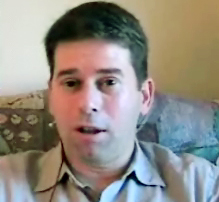Political views
Drezner rarely discusses his political loyalties, but in 2011 he wrote: "I find liberals write 'even conservative Dan Drezner...' while conservatives often deploy terms like 'academic elitist' or 'RINO'. In my case, at this point in time, I believe that last appellation to be entirely fair and accurate. I'm not a Democrat, and I don't think I've become more liberal over time." [12]
Drezner supported the 2003 U.S. invasion of Iraq, writing that "a successful invasion not only eliminates the Iraqi threat, but over the long run it reduces the Arab resentment that feeds Al-Qaeda." [13]
Drezner was a signatory to a March 2016 open letter by Republican national security community members that opposed Donald Trump as the Republican nominee for U.S. president. [14] Drezner announced in July 2017 that he was no longer part of the Republican Party. [15] In October 2017, he recommended resignation to Secretary of State Rex Tillerson. [16]
Drezner wrote that the Trump administration deserved some credit for the 2025 U.S. strikes on Iranian nuclear sites:
"Knocking out key Iranian nuclear facilities with minimal blowback is a pretty significant accomplishment. Enabling Israel to embarrass Iran on the global stage and decapitate much of its top military leadership will yield additional policy dividends. The twelve-day air attacks continue a trend in which Iran and its proxies find themselves in a significantly weaker position than they were prior to October 7, 2023." [17]
Drezner has published columns, essays, and op-eds in many media outlets, including The New Republic , [18] Foreign Affairs , [19] Foreign Policy , [20] The New York Times , Slate , [21] Tech Central Station , and The Wall Street Journal . He has been a frequent guest on Bloggingheads.tv and various other broadcast media. He originally blogged on his website, DanielDrezner.com, but moved in January 2009 to become a contributing blogger at ForeignPolicy.com. [22] Drezner then moved to The Washington Post in 2014, eventually leaving in 2022. [23] [24] He has moderated and spoken at various Council on Foreign Relations events. [25]
Drezner's 2007 book, All Politics Is Global: Explaining International Regulatory Regimes, looked at international economic regulations and concluded that these were under the control of the most wealthy and powerful nations, as they had been in the past. G. John Ikenberry in Foreign Affairs comments: "His main contribution, however, is to explode a popular notion of globalization and thereby to set an agenda for the study of global regulatory politics. For social movements seeking to shape the governance of the world economy, all roads still lead to the state." [26]
Drezner's 2011 book, Theories of International Politics and Zombies, speculated about different ways the international community might respond to a zombie outbreak, although he "concedes that the statistical probability of such an event is extremely difficult to determine but generally thought to be low". Oliver Stuenkel, writing in Post-Western World, commented: "Drezner's book is a must-read for young international relations scholars, considering the vast attention this topic is likely to get in the future." [27]
Drezner's 2014 book, The System Worked: How the World Stopped Another Great Depression, examines the 2008 financial crisis. In it, Drezner praises the international response to the crisis and says that a major economic depression was averted. Jonathan Kirshner, in his review in Boston Review , said the book was "smart, thoughtful, and important" but disagreed with Drezner on the issues of free trade and globalization. [28]
This page is based on this
Wikipedia article Text is available under the
CC BY-SA 4.0 license; additional terms may apply.
Images, videos and audio are available under their respective licenses.
